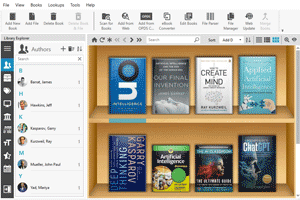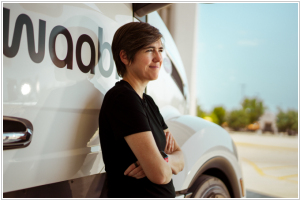3 books on AI for Music [PDF]
Like
16
These books tell about the applications of artificial intelligence in music composition, recommendation systems, audio analysis, and personalized music experiences.
1. The Music of the Future: How AI Is Composing Melodies
2025 by

The act of composing music has long been considered a deeply human and creative process. This book describes modern tools that can generate melodies and explains how these systems work. Perhaps the leading service right now is MuseNet from OpenAI. It can compose music in a variety of styles, from classical to pop, jazz and electronic and can generate up to 10 different instruments at a time. MuseNet uses ML transformers, which are trained on a large set of musical tracks and predicts the next note (similar to how LLMs predict the next word in a text). The main pursuer is Google's Magenta, an open-source model that can generate melodies and add harmonies to existing tracks. It also includes additional tools - MelodyRNN and MusicVAE, that allow you to compose, remix and experiment with music. It uses not transformers, but old-good recurrent neural networks. Another well-known service, AIVA, is designed specifically for composing soundtracks for movies and games. Users can set the mood and tempo of a composition, matching it to its intended use.
Download PDF
2. Artificial Intelligence and Music Ecosystem
2022 by Martin Clancy

In this book, musician and researcher Martin Clancy asks his friend, orchestra conductor Jacque Attali (who in 2019 wrote an article called “Art, the Last Bastion of Freedom vs. Artificial Intelligence”): What AI can change music? He replies that he dreams of conducting a symphony orchestra of ten thousand musicians using AI. Also though I'm not a composer, AI will let me to become a composer. AI is an amplifier of creative thinking and its manifestation. It will be possible for anyone to compose like Tchaikovsky and do what Tchaikovsky did not have time to do because he died. We will have two hundred symphonies by Tchaikovsky and nine hundred symphonies by Beethoven and no one will be able to say that this is not Beethoven. We will see singers, like Pavarotti, sing again – but with new songs. The line between reality and virtuality, reality and art - will disappear. If you think about it, art only exists as reality when it is in the past. A work of Mozart is reality. But a work of art that has not yet been created is not reality. However, the line between reality and fiction will disappear.
Download PDF
3. The Artist in the Machine: The World of AI-Powered Creativity
2020 by Arthur I. Miller

This book in particular tells about Google’s Magenta project and its creator, Douglas Eck. Eck joined Google in 2010 and was enthusiastic about the challenge of combining artificial intelligence and music. He says that creativity can only flourish where there are boundaries, rules and constraints. Eck’s constraint was to connect Magenta to Google Brain and its deep learning research center, using ML-models at every step, from start to finish. Everything used to create Magenta was open source — including TensorFlow, Google’s vast library on GitHub, a huge platform for software development. Once Magenta was launched, Eck set to work on his first project: giving a machine the ability to compose music. The result was a short 90-second MIDI tune that quickly went viral and was heralded as “the world’s first machine-composed tune.” In fact, she created a sensation.
Download PDF
How to download PDF:
1. Install Gooreader
2. Enter Book ID to the search box and press Enter
3. Click "Download Book" icon and select PDF*
* - note that for yellow books only preview pages are downloaded
1. The Music of the Future: How AI Is Composing Melodies
2025 by

The act of composing music has long been considered a deeply human and creative process. This book describes modern tools that can generate melodies and explains how these systems work. Perhaps the leading service right now is MuseNet from OpenAI. It can compose music in a variety of styles, from classical to pop, jazz and electronic and can generate up to 10 different instruments at a time. MuseNet uses ML transformers, which are trained on a large set of musical tracks and predicts the next note (similar to how LLMs predict the next word in a text). The main pursuer is Google's Magenta, an open-source model that can generate melodies and add harmonies to existing tracks. It also includes additional tools - MelodyRNN and MusicVAE, that allow you to compose, remix and experiment with music. It uses not transformers, but old-good recurrent neural networks. Another well-known service, AIVA, is designed specifically for composing soundtracks for movies and games. Users can set the mood and tempo of a composition, matching it to its intended use.
Download PDF
2. Artificial Intelligence and Music Ecosystem
2022 by Martin Clancy

In this book, musician and researcher Martin Clancy asks his friend, orchestra conductor Jacque Attali (who in 2019 wrote an article called “Art, the Last Bastion of Freedom vs. Artificial Intelligence”): What AI can change music? He replies that he dreams of conducting a symphony orchestra of ten thousand musicians using AI. Also though I'm not a composer, AI will let me to become a composer. AI is an amplifier of creative thinking and its manifestation. It will be possible for anyone to compose like Tchaikovsky and do what Tchaikovsky did not have time to do because he died. We will have two hundred symphonies by Tchaikovsky and nine hundred symphonies by Beethoven and no one will be able to say that this is not Beethoven. We will see singers, like Pavarotti, sing again – but with new songs. The line between reality and virtuality, reality and art - will disappear. If you think about it, art only exists as reality when it is in the past. A work of Mozart is reality. But a work of art that has not yet been created is not reality. However, the line between reality and fiction will disappear.
Download PDF
3. The Artist in the Machine: The World of AI-Powered Creativity
2020 by Arthur I. Miller

This book in particular tells about Google’s Magenta project and its creator, Douglas Eck. Eck joined Google in 2010 and was enthusiastic about the challenge of combining artificial intelligence and music. He says that creativity can only flourish where there are boundaries, rules and constraints. Eck’s constraint was to connect Magenta to Google Brain and its deep learning research center, using ML-models at every step, from start to finish. Everything used to create Magenta was open source — including TensorFlow, Google’s vast library on GitHub, a huge platform for software development. Once Magenta was launched, Eck set to work on his first project: giving a machine the ability to compose music. The result was a short 90-second MIDI tune that quickly went viral and was heralded as “the world’s first machine-composed tune.” In fact, she created a sensation.
Download PDF
How to download PDF:
1. Install Gooreader
2. Enter Book ID to the search box and press Enter
3. Click "Download Book" icon and select PDF*
* - note that for yellow books only preview pages are downloaded


